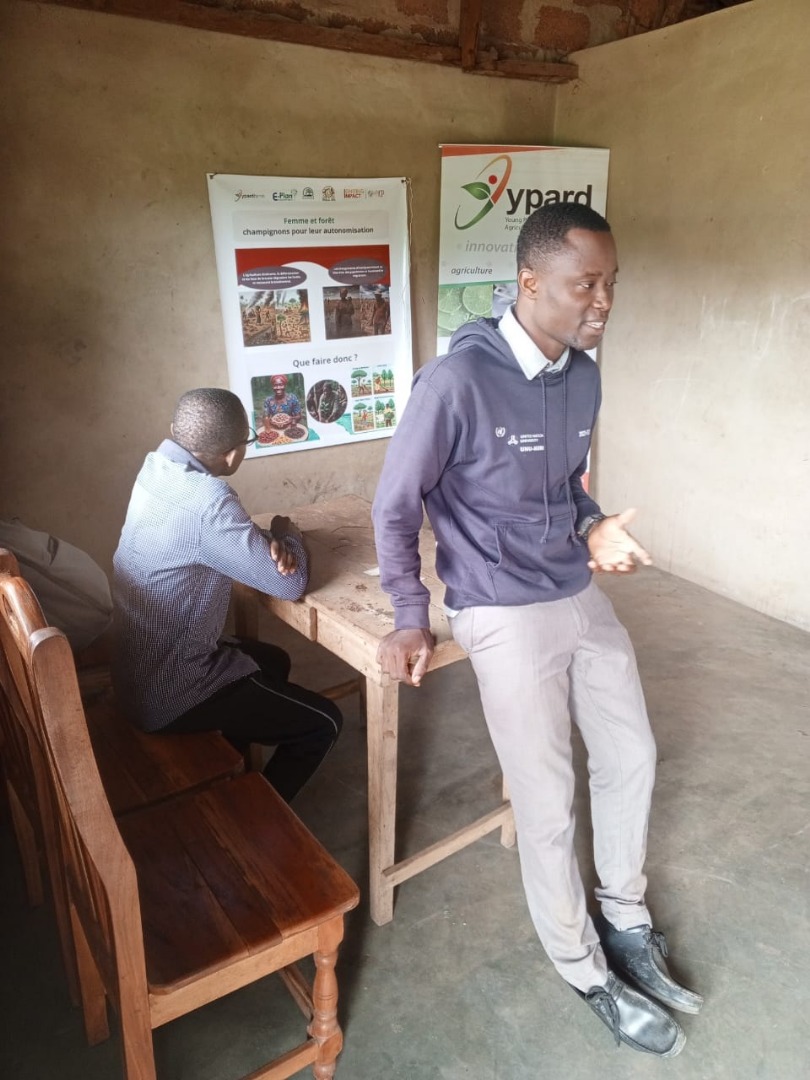The village of Agoua, nestled in the heart of central Benin, recently became the stage for a transformative movement in rural women’s empowerment. The “Fungi for Her Freedom: Economic Empowerment Through Mushroom Farming” project was officially launched there by YPARD Benin, marking a significant milestone in the journey toward sustainable livelihoods and climate resilience for women in rural communities.
This initiative, led by Wilfrid Adjimoti, YPARD Benin’s country representative and project coordinator, is not just about agriculture—it’s a bold step toward social inclusion, environmental stewardship, and economic justice for vulnerable populations. Specifically targeting young rural women—many of whom are displaced or disproportionately affected by the impacts of climate change—the project harnesses the potential of mushroom cultivation as a practical, low-cost, and sustainable livelihood strategy.

At the core of “Fungi for Her Freedom” is the conviction that agriculture can serve as a powerful vehicle for social transformation—when it is inclusive, innovative, and locally grounded. Mushroom farming, in particular, was chosen for its numerous advantages: it requires minimal land, recycles organic waste, thrives in low-resource settings, and offers significant nutritional and commercial value.
During the launch event in Agoua, participating women were introduced to the ecological and economic benefits of mushroom production. They received awareness training on sustainable forest resource management and explored how fungi-based farming could open up new income-generating pathways. As both an environmentally friendly and income-generating activity, mushroom farming was introduced as a viable alternative to combat poverty, address social exclusion of women in agricultural value chains, and reduce youth migration, especially among women, seeking better opportunities elsewhere.
This project is made possible thanks to the Migration Youth Climate Platform (MYCP), whose support through the MYCP Igniting Impact Micro-Grants Program is helping grassroots leaders translate climate action into tangible community benefits. As one of the selected recipients from a competitive pool of applicants across Africa, YPARD Benin’s project stood out for its clear vision, strong local engagement, and alignment with global climate and development goals.
In addition to MYCP’s support, the success of the project is bolstered by strategic collaborations with MyTIPS (Research Unit on Tropical Mycology and Plant-Soil Fungi Interactions), E-Plan, and RAEDD (African Network for Sustainable Development Education and Research). These partners are providing technical training, scientific support, and institutional guidance to ensure that the project is both impactful and sustainable.
Special appreciation goes to Mr. Bienvenu Kpognihoué, whose continuous encouragement and mentorship have been instrumental in guiding the project from conception to implementation.
“Fungi for Her Freedom” is more than just an agricultural intervention—it is a symbol of hope, resilience, and empowerment. By equipping young rural women with the tools and knowledge to lead in sustainable agriculture, the project is cultivating not only mushrooms but also the agency of women and community resilience.
In a world where the impacts of climate change and inequality are increasingly interconnected, local initiatives like this one remind us that solutions often grow from the ground up—sometimes, quite literally.
The fight for gender equity and climate-smart development continues—mushroom by mushroom.